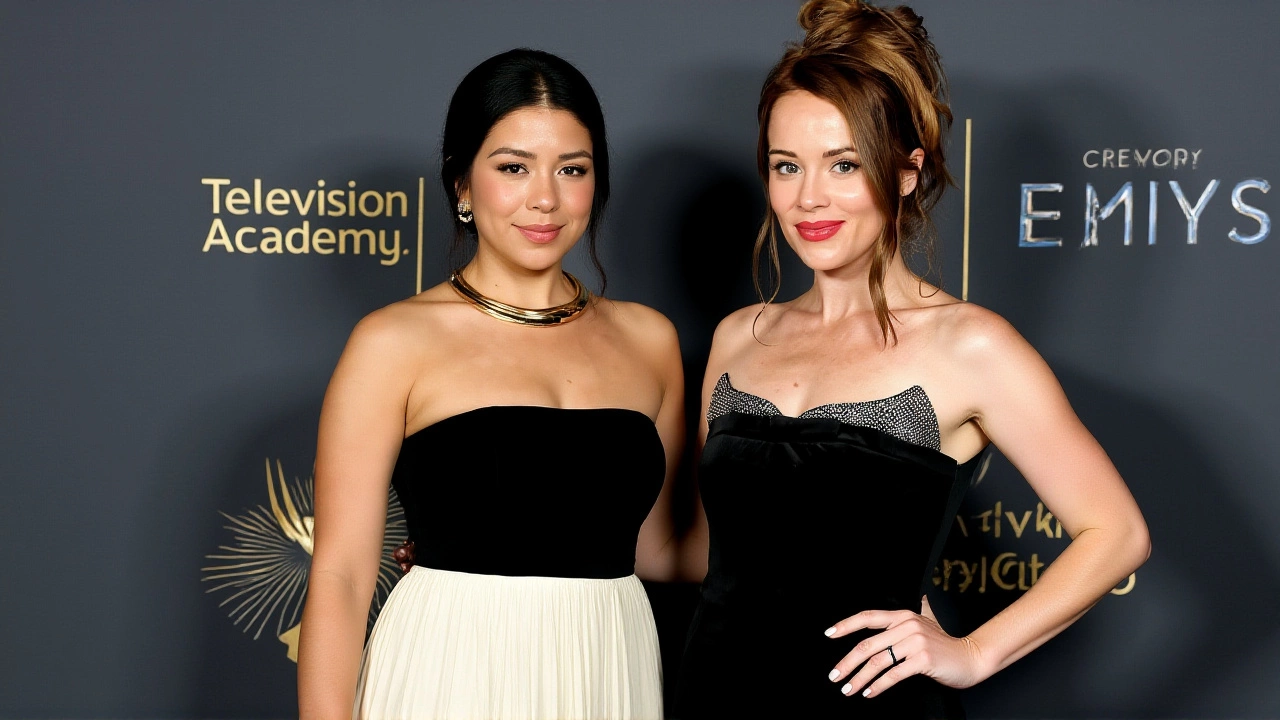The reality series The Secret Lives of Mormon Wives has ignited fierce debate among viewers, not for its portrayal of faith, but for the raw, often ugly dynamics between its cast — most notably Whitney Leavitt, whose behavior has drawn scathing criticism across social media and review platforms. As of November 21, 2025, the show holds a middling 5.5/10 audience rating on IMDb, with two anonymous reviews capturing the polarized reaction: one calling Leavitt "toxic, a prick, and has no self-insight," while another bluntly asked, "Why are they even relevant?" The series, which documents the personal and social lives of women who identify with The Church of Jesus Christ of Latter-day Saints, has become less a window into religious life and more a spectacle of interpersonal warfare — amplified by their pre-existing fame on TikTok.
Who Are the Cast Members, and Why Does It Matter?
The show’s 29-episode run from 2024 through 2025 features a tightly knit ensemble of social media influencers, each with hundreds of thousands of followers. Whitney Leavitt appears in every episode, making her the central figure — and the most controversial. Mikayla Mathews follows with 27 episodes, then Taylor Frankie Paul (25), Jennifer Affleck and Layla Taylor (23 each), and Jessi Ngatikaura and Demi Engemann (22 each). Even the men — Zac Affleck and Conner Leavitt — appear in over 20 episodes, suggesting their roles are more than peripheral.What’s striking isn’t just the volume of episodes, but the consistency. There’s no record of hiatuses, cast absences, or production breaks. That means the drama — the arguments, the alliances, the betrayals — unfolded continuously over two years. No editing trick. No scripted reset. Just real-time friction, captured in real time.
Religion as Backdrop, Not Focus
Despite the title, the show rarely engages with The Church of Jesus Christ of Latter-day Saints’ doctrine, history, or official positions. No clergy appear. No theological discussions unfold. Instead, the word "Mormon" functions as a cultural shorthand — a signal to viewers that these women live within a conservative, image-conscious, tightly knit community where conformity is expected, and deviation is punished. The viewer who wrote, "I appreciated seeing some people question their religion," is likely the exception. Most of the show’s tension comes from jealousy, social media clout, and who gets to be the "queen bee" of the group.It’s not about faith. It’s about fame. And the irony? These women built their platforms on curated images of piety, motherhood, and modesty — then shattered them on camera. The result? A show that feels less like a documentary and more like a reality TV version of high school, but with bigger budgets and more followers.

Viewer Backlash: "It Feels Like Middle School on Steroids"
The reviews on IMDb tell the real story. One viewer, after watching the entire season, summed it up: "Their constant back-stabbing is petty and reminds me of being in middle school." Another called the relationships "uncomfortable to watch at best, extremely toxic at worst." And while some praise the women for "being honest about challenges," the overwhelming sentiment is exhaustion — not empathy.Whitney Leavitt, in particular, has become a lightning rod. Her presence dominates scenes. She interrupts. She corners others. She posts snippets of conflicts online before they’re even aired. One viewer wrote: "She ruins and overshadows some of the positive things you could have benefited from." That’s the crux: the show had potential. It could have explored how women navigate faith, identity, and modernity in a conservative faith. Instead, it became a competition for who could be the most dramatic.
What’s Next for the Series?
With filming continuing uninterrupted through 2025 and no official word on renewal, the future of The Secret Lives of Mormon Wives hangs in the balance. But one thing is clear: the audience isn’t tuning in for spiritual insight. They’re watching for the drama. And if the ratings hold steady, networks will keep producing it — because outrage, after all, is a reliable currency.What’s more concerning is the normalization of this behavior. These women aren’t actors. They’re influencers who turned their personal lives into content. And now, millions are watching them tear each other apart — all for clicks.

Behind the Scenes: What We Don’t Know
For all the noise, the show remains shrouded in mystery. No production company is credited. No network is named. No filming locations are listed. The only visual evidence on IMDb? Three official photos. That’s it. No press releases. No interviews. No statements from the cast. This isn’t just low-key — it’s almost clandestine. Which makes you wonder: is this intentional? Are they avoiding scrutiny? Or are they just too busy fighting each other to care?Frequently Asked Questions
Why is Whitney Leavitt so heavily criticized in viewer reviews?
Viewers accuse Whitney Leavitt of dominating scenes, triggering conflicts, and lacking self-awareness. With 29 episodes of screen time, her behavior — including public confrontations and social media leaks — is perceived as manipulative and emotionally exhausting. One viewer called her "toxic" and said she "overshadows" any positive messaging the show might have offered.
Is this show an accurate representation of Mormon women?
No. The Church of Jesus Christ of Latter-day Saints has not endorsed the show, and no church leaders or official voices appear in it. The series focuses on a small group of social media influencers who happen to identify as Mormon, but their interpersonal drama bears little resemblance to the broader, diverse experiences of millions of Latter-day Saint women worldwide.
How did these women become famous before the show?
Most cast members, including Whitney Leavitt and Mikayla Mathews, gained initial popularity on TikTok by posting curated content around motherhood, modest fashion, and religious lifestyle. Their transition to reality TV was a natural step — turning their online personas into a serialized drama for monetization and audience retention.
Why is the production so secretive?
The lack of credited producers, networks, or filming locations suggests either a low-budget, independent production or a deliberate effort to avoid media scrutiny. With no official statements and only three photos on IMDb, the show operates like a digital ghost — visible but untraceable, which fuels both curiosity and skepticism among viewers.
Does the show have a renewal for Season 2?
As of November 2025, no official announcement has been made. However, with filming continuing uninterrupted through 2025 and audience engagement driven by controversy rather than content, a second season is likely if the ratings remain above 5.0. Networks thrive on drama — especially when it’s real.
What’s the deeper cultural impact of this show?
It reflects a troubling trend: the commodification of religious identity for entertainment. By turning deeply personal faith experiences into viral conflict, the show risks reducing complex spiritual lives to clickbait. It also normalizes toxic behavior among women, framing emotional manipulation as "relatable" rather than harmful — a dangerous precedent for young viewers who see these women as role models.
